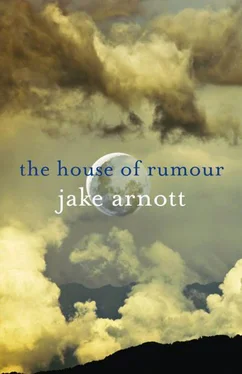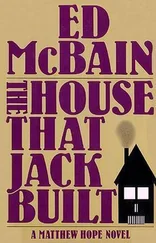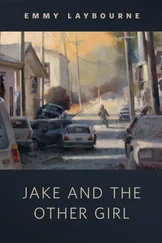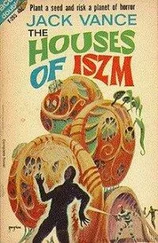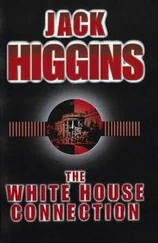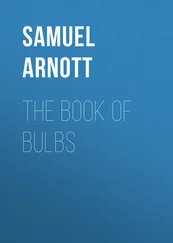Help me, Martin, she says. It’s at that moment that I realise that if I help to kill my mom, I might just get out of this alive. And that makes me feel bad. Like I’m a traitor. But I want to live. We’re walking away from the vat and I’m holding up Mom as she takes a drink of the potion. She coughs and drops the cup on the floor. She’s going to die. Part of me wants to get another cup for myself and go with her. Everyone is going together. Most people die on their own but now they are all going together. Mom is choking and shuddering but all the time leading me away from where people are taking the poison. And nobody has noticed that I haven’t taken mine. Mom starts to stumble and I stumble with her. All around us people are dropping to the ground, holding on to each other. Choking and coughing, crying and wailing. Calling out for the last time. Calling out to each other. Calling out to a God that has gone mad. I help Mom down gently and lie next to her. The sun is sinking. The sky is red like blood. Mom tries to say something to me but a froth comes out of her mouth. I hold on to her as she shakes and shakes. Then I feel the life go from her. And I’m on my own now. All around me people are dying and I’m lying among them, pretending to be dead, like Mom told me to. I’m on my own now.
It’s getting dark and there is some shouting up at the Pavilion. Gunshots. One. One, two, three. Somebody calling out. One more shot then silence. Just the sounds of night. The chirp of insects and the sad calling of the birds. I raise my head to look around. I can’t see anybody left standing. No Red Brigade standing guard no more. I look down and see Mom dead next to me. I look across all the bodies lying all over the ground as far as I can see through the gloom. I feel like I’m the last person left alive on the whole earth. I get up and start to run. Run towards the bush.
In the bush it’s dark. Pitch black. It’s hard to make my way through the tangle of branches but I just want to find a place to hide. I find a place where I can curl up. I just want to sleep. For my mind to go black like the jungle. I feel so sad and alone and my mind is racing, racing. I close my eyes and try to think of sleep. All I can think of is Death.
Then I hear something rustling in the bush. At first I think that it’s somebody come after me. I curl myself up even tighter. Try not to move, not even breathe. Then I realise that it’s not a person. It’s an animal of some sort. It comes closer and I feel the presence of it, like it can feel me too. I don’t know what it is. I think maybe I’ve taken myself to see the tiger and I’ll finally know what that means. I think that now I’ll die in the bush anyway. All on my own. The animal is sniffing, like it’s sniffing me. Then I think this is Death itself come to get me. And I shout out and the thing rushes off. And I start to sob all alone in the jungle, crying for Mom and everybody else.
And that’s when I get to sleep.
I wake up and see the sun burning green and yellow through the bush. I make my way back, not really believing what has happened the night before. Somehow thinking that it was just another White Night and everybody will be back to life in the morning. Then I see all the bodies in the daylight. And I know that it’s true even though I still don’t believe it. Mom was right. God must have gone mad for this to happen. Everybody is gone. Passed. There’s an awful stink in the air and the low buzz of flies. Like Death is a crazy child humming to himself.
Then I see a lone woman walking with a cane. A black senior limping and trying to make her way through all of the dead bodies. I hid under the bed, she tells me. I never, I never thought, she starts to say then stops. Looking all around then back to me. Mercy. Are we all there is?
The metaphysicians of Tlön do not seek for the truth or even for verisimilitude, but rather for the astounding. They judge that metaphysics is a branch of the literature of fantasy.
Jorge Luis Borges,
Tlön, Uqbar, Orbis Tertius
Larry Zagorski is a prolific author who has enjoyed intermittent commercial success and some critical acclaim (mostly in Europe and Japan) but owing to his chosen field remains largely unrecognised by the American literary establishment. ‘I always looked for the obscure, for something hidden from view,’ he said in 1989. ‘It’s little wonder that I was claimed by what I sought.’1
Born in Los Angeles in 1922 to estranged parents of Polish descent (Zagorski is a topographic name meaning ‘one who lives on the other side of the hill’), he found refuge in fantasy and speculative writing from early childhood. When at the age of seven he was isolated and bedridden for three weeks with a severe case of mumps, his constant companion was a copy of Joseph Jacobs’ English Fairy Tales with full plate illustrations. Later influences were the Martian novels of Edgar Rice Burroughs and the pulp magazines Weird Tales and Wonder Stories .
By his own account he was a sickly child who lived mostly in his own imagination. The young Zagorski’s search for the unknown was also a quest for an absent father. Zagorski senior left the family home when Larry was barely three years old with a chaotic trail of rumour and hearsay in his wake. ‘I was told variously by my mother that he was a private detective, a gold prospector, a circus horseman, and God knows what else. I eventually learnt that he was none of these things, merely a cheap conman, but as a child to me he was some kind of totem, a mysterious monolith. I looked for him in comic books and adventure stories.’2
His first published story, ‘The Tower’ (printed in Amazing Stories in 1939 when he was seventeen), is a reworking of ‘Childe Rowland’ from the Jacobs stories of his childhood. A fatherless group of children find themselves trapped in a dark tower, the enchanted domain of the elfish ones. The interior is described (as in the original) as a wondrous fretwork of precious stones, magical lamps and illuminated crystals. It becomes clear (in Zagorski’s version) that this is the control panel of a spacecraft and the elfish inhabitants are visiting aliens, physically weak but able to bewitch with drugs and hypnotism. The children overcome the elfish extraterrestrials and escape as the tower blasts off into the firmament.
‘Childe Larry to a dark tower came,’ Zagorski writes in a later author’s note on this story, linking it to his fruitless attempts at understanding his relationship with a lost parent. It was a process that transformed Larry’s attitude so that from then on, rather than identifying his missing father as the hero of pulp stories, he instead becomes the strange creature, the alien. This liberated his creative sense, launching it into outer space. He joined the Los Angeles Science Fiction Society and began to sell stories regularly to Amazing Stories and Fabulous Tales , replete with ray guns and bug-eyed monsters. But science fiction was itself undergoing a transformation, and was about to enter what some were to call its ‘Golden Age’.
Generally agreed to have commenced when MIT physics major John W. Campbell Jnr assumed editorship of Astounding magazine in the late 1930s, the Golden Age3 brought about what came to be known as the ‘hard science’ school of speculative fiction. While recognising the need for some background logic in SF, Zagorski was never entirely at ease with the tendency towards pseudo-rationality and technology fetishism, or a new orthodoxy with strict rules for robots and regulations on how to solve faster-than-light travel. To focus on scientific feasibility rather than the potential of the imagination went against his instincts as a writer. As Jorge Luis Borges observes, the fiction of Jules Verne speculates only on future probability (the submarine, the trip to the moon, the talking picture), while the work of H.G. Wells surpasses it by conceiving ‘mere possibility, if not impossibility (the invisible man, a crystal egg that reflects the events on Mars, a man who returns from the future with a flower from the future, a man who returns from the other life with his heart on the right side, because he has been completely inverted, as in a mirror)’.4
Читать дальше
